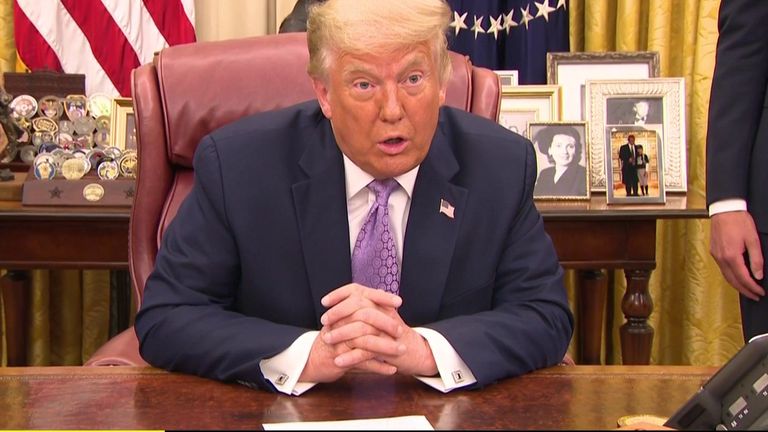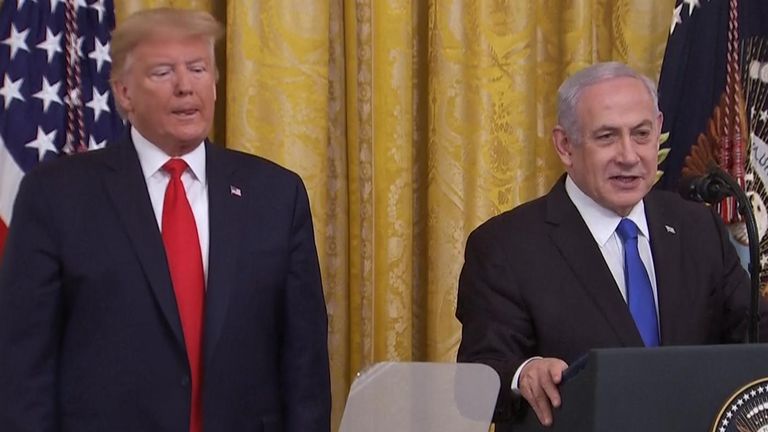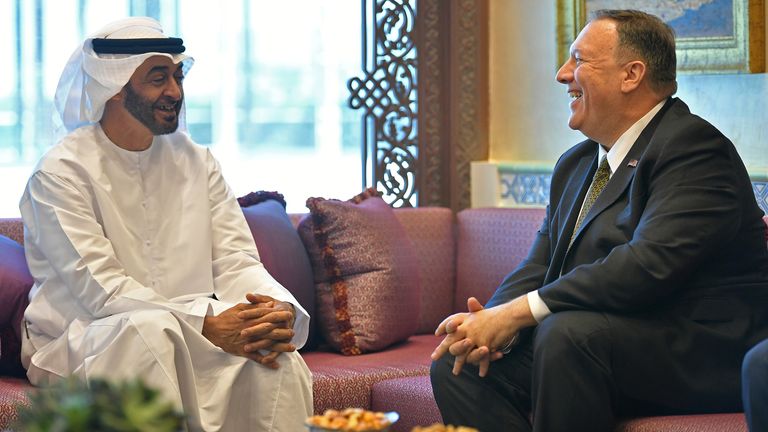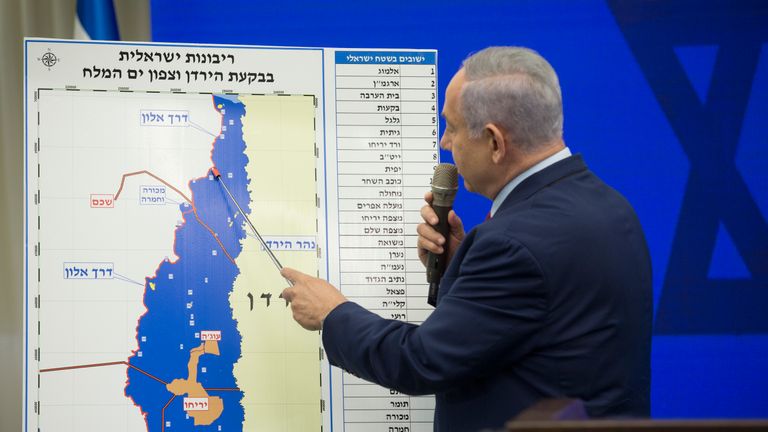The United Arab Emirates (UAE) and Israel are to establish diplomatic ties in a deal halting planned annexation of occupied land sought by the Palestinians.
US President Donald Trump announced the deal on Thursday after successfully getting Israeli Prime Minister Benjamin Netanyahu and Abu Dhabi Crown Prince Mohammed bin Zayed Al Nahyan to agree to a normalisation of relations between the two countries.
The deal, to be signed in the coming weeks, will see Israel backing down from “unilateral annexation” of areas of the occupied West Bank – land sought by the Palestinians for their future state, Israeli foreign minister Gabi Ashkenazi said.
It also firms up opposition to regional power Iran, which the UAE, Israel and the US view as the main threat in the conflict-ridden region.
Israel signed peace agreements with Egypt in 1979 and Jordan in 1994 but the UAE, along with most other Arab nations, did not recognise Israel and had no formal diplomatic or economic relations with the Jewish nation – until now.
A joint statement tweeted out by Mr Trump said delegations from Israel and the UAE will meet to sign bilateral agreements on “investment, tourism, direct flights, security, telecommunications, technology, energy, healthcare, culture, the environment, the establishment of reciprocal embassies and other areas of mutual benefit”.
It added that Israel’s and the UAE’s leaders expressed their “deep appreciation” to Mr Trump “for his dedication to peace in the region and to the pragmatic and unique approach he has taken to achieve it”.
Israeli MPs have welcomed the deal, with defence minister Benny Gantz saying it expressed an “alliance” between countries in the region who aim for stability and prosperity, saying it would have “many positive implications” on the region.
The Hamas militant group, which wants to destroy Israel, accused the UAE of stabbing the Palestinians in the back.
“This announcement is a reward for the Israeli occupation’s crimes,” said Hamas spokesman Fawzi Barhoum.
“The normalization is a stabbing in the back of our people.”
UAE foreign minister Anwar Gargash called the deal “a bold step”.
“The UAE is using its gravitas and promise of a relationship to unscrew a time bomb that is threatening a two-state solution,” he added.
He said embassies in both countries would be opened soon, adding that “this is for real” but admitted “nothing is perfect in a very difficult region”.
This is a big win for Donald Trump and Israel – but the Palestinians have been left out in the cold
By Mark Stone, Middle East correspondent
It’s more than 25 years since an Arab country normalised ties with Israel.
No wonder President Trump calls it “a truly historic moment”. He isn’t wrong.
Until now there had only been two countries in the Arab world with relatively normal relations with the Jewish State of Israel – Egypt and Jordan.
Today’s announcement at the White House was a rabbit-out-of-hat moment in the sense that it was not billed and not expected now.
Yes – it’s true that for some time, quietly in the background the United Arab Emirates (UAE) and Israel have warmed their relations.
But the formal announcement of the normalisation of relations with a key Arab nation combined with a commitment by Israel to suspend its heavily trailed plans to annex large parts of the occupied West Bank – this is big, important news.
The deal has been named the Abraham accord. Abraham was the father of all three great faiths at the core of the struggle for Middle East peace.
The three signatures of this deal believe it could pave the way for dramatic changes in the region.
The expectation is that other Arab states could now follow the UAE. The deal, says Donald Trump, will be an “ice breaker” for countries like Oman, Bahrain, Kuwait and others to normalise their relations with the Jewish State.
For commerce, for tourism, for aviation, for geopolitics, this is certainly a crucial juncture in the long road to Middle East peace.
Iran is the common enemy of Israel and much of the Arab world. This accord strengthens the anti-Iran axis but also potentially strengthens efforts for dialogue there. The UAE and Iran have dialogue that can now, indirectly, be extended to Israel.
But in all this, one key player has been left out: the Palestinians.
The rumour is that they were not consulted at all in this deal. While it is positive for Palestinians that the annexation plans are, it seems, off – there is a deep sense of betrayal.
Just look at how Hanan Ashrawi, one of the most senior and seasoned Palestinian diplomats, replied to the Abu Dhabi Crown Prince’s tweet.
“May you never experience the agony of having your country stolen; may you never feel the pain of living in captivity under occupation; may you never witness the demolition of your home or murder of your loved ones. May you never be sold out by your ‘friends’,” she wrote.
This is a big win for Donald Trump. It is a big win for Israel (though more for pragmatists than hardline settlers). But for the Palestinians what does it mean?
Well – for decades the price Arabs have asked from Israel for the normalisation of relations has been a Palestinian State. But no longer.
Is this the clearest sign yet that Arab sympathy for Palestinians is waning? Trade, commerce and an axis against Iran trumps the Palestinian cause? Maybe.
A Palestinian State still far off. For Palestinians, the Abraham Accord has starved off annexation but the status quo of occupation will rumble on.




